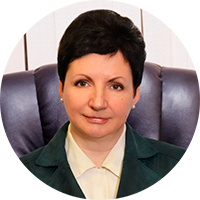
|
|
Modern challenges of teaching English at non-linguistic universities
Irina I. Klimova - Head of the Foreign Languages Department, PhD, professor, Financial University under the Government of the Russian Federation
|
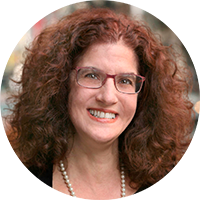
|
|
Guilty Secrets: Unfashionable but Effective Teaching Techniques
Dorothy Zemach has taught ESL for over 18 years in Asia, Africa, and the US. She currently concentrates on writing, editing, and publishing ELT materials and textbooks among which are Macmillan Education Skillful and Mind Series, Get Ready for Business and Academic Writing Series. A frequent plenary speaker at international conferences
Trends in language teaching come and go; but does learning itself change all that much? In this talk, I’ll share some love for some “nobody does that anymore” techniques that nevertheless result in solid, efficient learning, and make an argument for focusing on results first when evaluating new (and old) approaches.
|
|
|
Teaching Study Skills (workshop format)
Dorothy Zemach
|

|
|
Critical thinking makes sense!
Grzegorz Spiewak - MA in Linguistics, Ph.D in English & Linguistics, the president of IATEFL Poland
We are living in an age of information. In fact, we are being bombarded with all kinds of text: verbal and non-verbal, static and dynamic. It takes time, effort and skill to cope with so much data. That’s where critical thinking comes in. It is a vital skill for 21st global citizens and above all for modern university students. Critical thinking is about processing complex information efficiently, evaluating its value and relevance, and above all spotting various kinds of hidden messages and agendas behind what we read, look at, watch or listen to.
During this session we’ll introduce the concept of critical thinking as a key academic skill and explore its potential in the modern ELT classroom at tertiary level, as a way to tackle otherwise familiar topics and issues, and give them a fresh relevance. Needless to add, it’s all in the service of producing more stimulating, engaging, and effective class sequences, promoting the development of both receptive and productive language skills.
|
|
|
Workshops
|
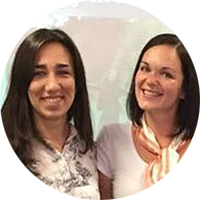
|
|
Cultural awareness in the classroom (based on the content of the course at NILE) (аудитория 31)
Daria Suhorukova - a teacher of Financial University under the Government of the Russian Federation, has got certificates of “Wimbledon School of English”, “L’Alliance Française Marseille-Provence”, “DID-Institut” and NILE.
Alexandra Lukina - a teacher of Financial University under the Government of the Russian Federation, NILE alumna.
|
|
|
|
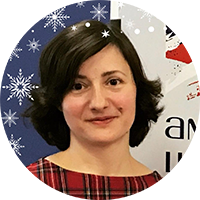
|
|
Reading Between the Lines (аудитория 31)
Ekaterina Chistovskaya, Ph.D. in Linguistics, associated professor in MRSU
Inferring or 'reading between the lines' is crucial in reading comprehension. Efficient readers are supposed to infer meaning which is not explicitly stated in the text (either in fiction or mass media). The aim of this workshop is to focus on materials teaches can chose or create themselves to encourage students to interact with texts and to develop reading and critical thinking skills.
|
|
|
|

|
|
IELTS Academic: expanding students' vocabulary (аудитория 22)
Maria Burova - Senior English teacher of foreign languages 4 in MGIMO university, RSE task developer (FIPM), she has got CELTA, DELTA certificates, Cambridge speaking assessor.
In this workshop we will explore possible ways of involving students in engaging vocabulary activities and maintaining their natural enthusiasm for vocabulary acquisition. These integration tasks may assist language learners in mastering flexibility, fluency and precision with less common lexical items.
|
|
|
|

|
|
Dealing with emergent language and error correction: techniques in professional English settings (аудитория 33)
Matt Vesty - English Teacher, Teacher Trainer IELTS expert, Birmingham UK
Are your classes full of rich student interaction and filled with language on the board? What can we do with it afterwards? this workshop will answer both of these questions and look at techniques for getting the most out of the speaking activities in in-company ESP, making emergent language memorable, and providing varied error correction.
|
|
|
|

|
|
Developing Language Skills with OPEN MIND: acquiring communicative competence (аудитория 25)
Marina Khalyutina, Marina Ziza, Lomonosov Moscow State University
The workshop focuses on the unique and unconventional approaches to teaching grammar; provides an insight into the methodological tools based on the complementary language skills development; introduces a three-stage sub-skill mastering approach ending up with a communicative outcome.
Marina Khalyutina - Ph.D. in Linguistics, associated professor in Lomonosov Moscow State University
|
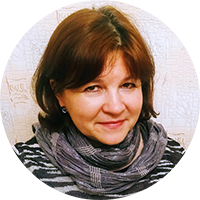
|
|
Marina Ziza, senior teacher, Lomonosov Moscow State University
|
|
|
|
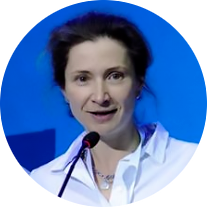
|
|
Improving the Impact of your Research (аудитория 23)
Daria Iovcheva - a representative of Springer Nature in Russia, Ukraine, Belarus, Armenia, Georgia
|
|
|
|
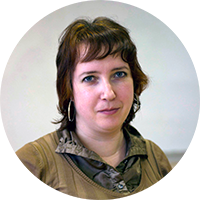
|
|
Applying Task-based approach to teaching Management students professional communication in English (аудитория 26)
Nadezhda Volkova, senior teacher in the Institute of Industry Management, RANEPA
The author looks at the application of Task-based approach to teaching students of non-linguistic university business communication in English. Theoretical principles and basic concepts of Task-based English language teaching are considered as well as organising students' work on a task during an English class.
|
















